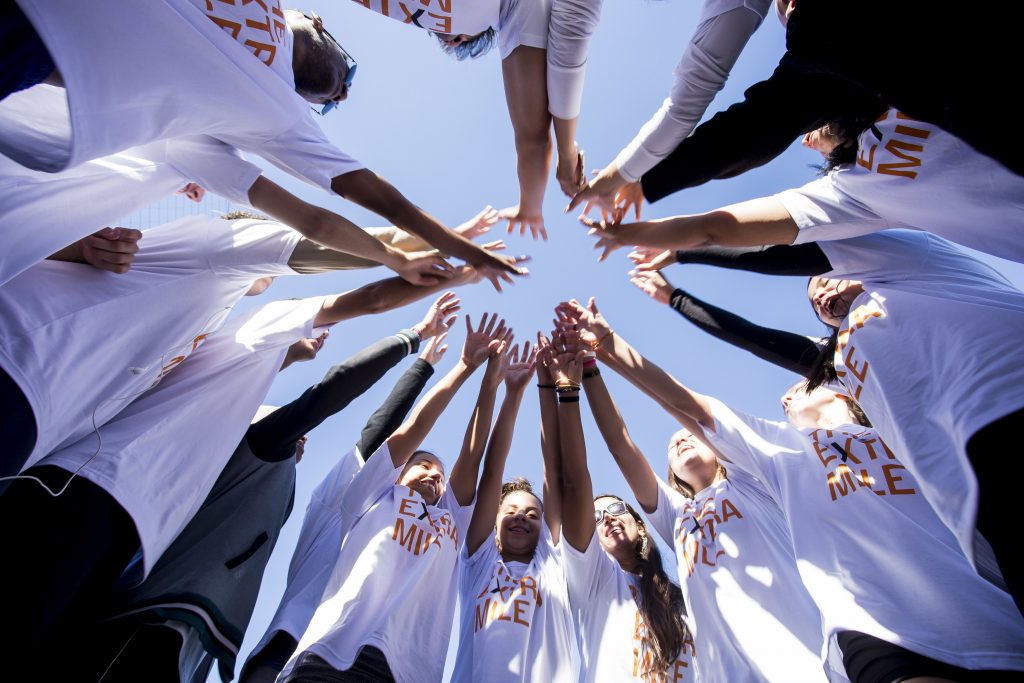Radha Balani
Finally, sport has returned to the heart of communities, and last week the nation grasped hold of it.
We are seeing children playing football again, the tennis courts back in action and even amateur rugby clubs are back in training. The sunshine is certainly a useful factor as Return To Play built momentum throughout the week just gone.
As it grows, however, we can’t let our guard down. Mood is high, but we must remain cautious around the ongoing support required to ensure the safe and appropriate return to play for children and young people particularly, off the back of the pandemic and the impact it has had.
Women in Sport recently released some interesting data around women and girls and confidence levels of sport. The positives are that lockdown has led girls to recognise the value of exercise for physical and mental health:
• 82% of girls say they will put more effort into being active when life returns to normal.
• 52% of girls agreed that keeping fit and doing physical activity was more important than ever.
• 55% of girls said they felt being physically active made them happier.
• 54% said that it made them less stressed.
However, the research highlighted a deeply concerning issue around a lack of confidence and motivation.
• 51% were concerned that they were losing their fitness.
• 45% worried that it would be hard to get back into the habit of sport and exercise after the pandemic.
• 41% have lost confidence in their sporting ability.
• 40% are worried about being in large groups again.
So, lockdown has helped with recognition around importance of exercise, but has had the opposite impact when it comes to actually doing it.
Last week, we celebrated the #ReturnToPlay. While so many have taken part in sport, there are so many young women and girls – and likely men and boys too – that have lost all confidence in their fitness, motivation and trust in sport.
Brands and grassroots sport now need to take more care and consideration in giving people a step up back into sporting life. Sport England has done a great job at this, but this needs to be fed throughout the chain from brands committed to the social impact of sport down to those delivering it.
1. There’s No Rush
Some people are diving head first back into sport and that’s great to see. It works for them, but not for everybody. We are all unique and have been affected differently by the pandemic.
Consider helping those that need it to ease back in slowly, recognising the need to adjust. Take into account the implications of people having been sheltered for some time, the lack of exercise, isolation and loneliness.
2. More Support
What support is in place to help young people kick start again? Think about any additional resources that you, as an organisation, could offer to provide more mental health and wellbeing support alongside sessions.
For young women, in a world where body image is harmfully rife, this will bring with it so many extraordinary challenges that need resolving, quickly.
Start off by talking to these to young people, asking them what support they need. Then, act on it and apply resources or sessions dedicated specifically to mental health – or whatever the requirement is.
3. Be Open
Create a safe space and generate open lines of communication – for young people to access if they want to talk or feel like they need more help.
So many will want to come to sessions but may be scared, anxious or struggling to get to.
Sport can play even more of a supportive role for children and young people than ever before. Organisations, clubs, brands all have a voice that they can give to young people to express themselves, working through the challenges of the past 12 months.
According to Sport England, 30% of people admitted their ability to perform daily activities, such as taking the stairs or carrying shopping, has declined since the pandemic began. So getting back to pre-coronavirus levels of physical activity is going to take some time.
There’s no rush, be considerate. Organisations and delivery partners need to consider their responsibility outside of simply arranging the activity. The bigger picture is the real challenge here.
One of the best things about all of this is that those of you who deliver grassroots sport do so with hearts and minds; with commitment, energy and passion. And, in the main, without pay. Your wellbeing is also really important, you may need support too. There are resources out there to help, don’t be afraid to use that word, and ask for help.

